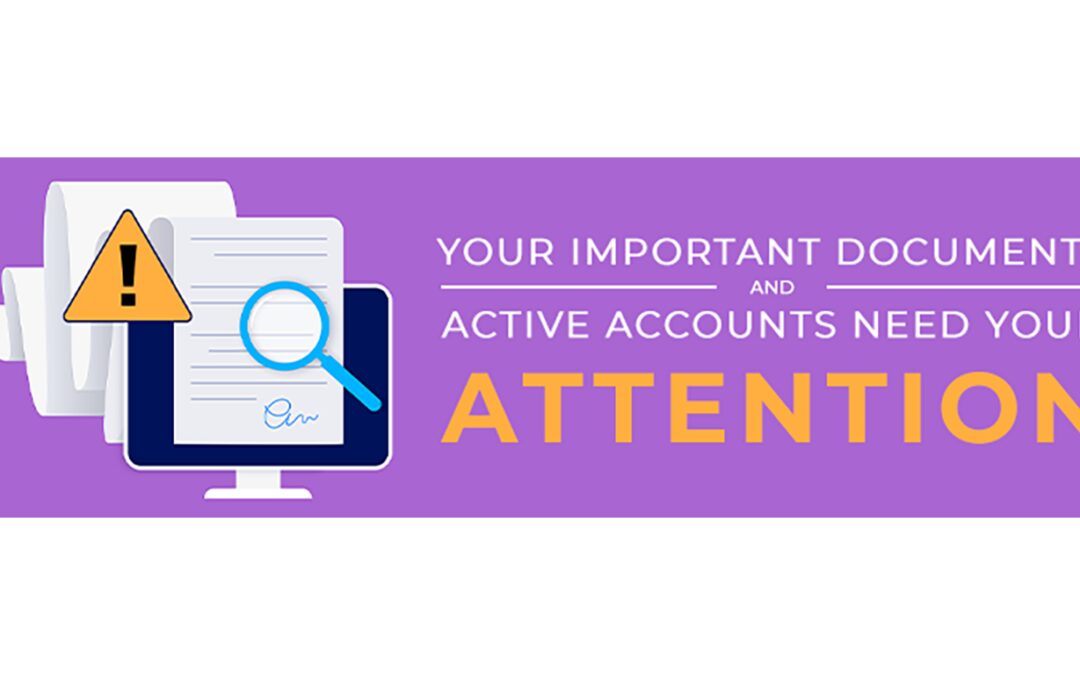ICE, ICE Checklist: With a simple checklist and proactive planning, you can keep your cool in case of an emergency.
ICE is not just for cooling your beverage in the summer. ICE number, or In Case of Emergency, is typically known for that designated contact in your phone who should be called in the event of a medical or tragic incident.
But have you appointed a knowledgeable individual who can easily access your comprehensive ICE list, containing vital information about your important documents and accounts?
Financial confidence begins by answering YES to these two questions:
#1 Are your important documents and account information located in one safe place?
#2 Does someone close to you know where to find this information in case of an emergency?
Whether you’re just starting out, in the prime of your career, have a flourishing business, or enjoying your golden years, it is never too early or too late to assemble this critical information.
We know that gathering details like this can feel overwhelming, so here is a list to use as a starting point.
Financial and Legal Documents
Will or living trust
Power of attorney documents
Healthcare proxy or advance directives
Retirement account details (401(k), IRA, pension)
Bank account details (savings, checking)
Investment account details (stocks, bonds, mutual funds)
Mortgage or loan documents
Tax returns (past years)
Safe deposit box details (location, key access)
Insurance Policies
Life insurance policies
Health insurance policies
Homeowner’s or renter’s insurance
Auto insurance policies
Umbrella liability insurance
Disability insurance policies
Long-term care insurance policies
Digital Accounts and Passwords
Email account details and passwords
Social media accounts and passwords
Online banking and investment account details
Cryptocurrency wallet details
Digital asset storage details (Bitwarden, LastPass, etc.)
Important Contacts
Attorney’s contact information
Financial advisor’s contact information
CPA/accountant’s contact information
Insurance agent’s contact information
Executor or personal representative’s contact information
Beneficiaries’ contact information
Other Essential Documents
Birth certificates
Marriage certificate
Social Security cards
Passports
Military records (if applicable)
Property titles and deeds
Vehicle titles and registrations
Medical records
Education records and diplomas
User manuals and warranty documents for major assets
Organizing this essential information is an important first step. Next, make sure someone close to you knows where to find everything in the event of an emergency. Then, set a reminder in your calendar to regularly review and update this checklist, especially if there are any changes to your financial or legal situation.
Get started today!
Do you have questions about this email or need help collecting this information? We’re here to guide you.
If you would like to learn more about our digital vaulting solutions or to schedule a call to learn how to use your vault more efficiently, simply click reply to this email. We are here to provide support as we navigate your financial journey together.







